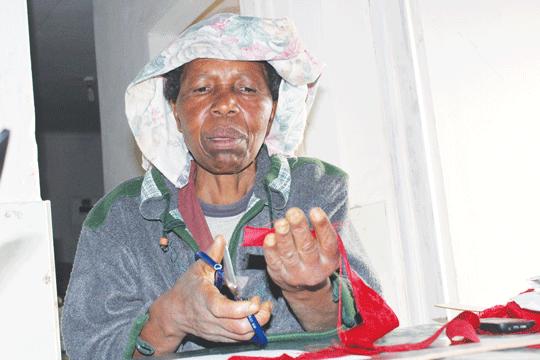Africa-Press – Lesotho. When Mamokhachane Mopeli pleaded with the National Curriculum Development Centre to set up an arts centre in Maseru in the early 2000s, no one seemed to bother.
“They were not interested,” she says.
The general thinking was that, given Lesotho’s well-documented developmental challenges, art seemed to serve no real utilitarian purpose, apart from a self-serving agenda for the artist.
Pumping money into the arts was therefore considered a sheer waste of scarce financial resources. So it was not a surprise for Mopeli that the bureaucrats in government offices in Maseru gave her a short shrift when she asked for support.
“There were many buildings that were not being used and I wanted to use one of those to set up an arts centre.
“The idea was that these children should not roam the streets, but they were not moved,” she says. Having been rebuffed by the government, Mopeli decided to go solo in setting up a community arts centre to teach the youth.
With support from her husband, Mopeli set up an arts centre in Sekamaneng that has provided training to hundreds of youths including the visually impaired.
But why the focus on art? “It speaks louder than words. It also occupies the mind and allows it to grow. Art is one of the best ways to know yourself, what you are capable of doing.
As an artist, you are able to assess and review yourself. ” Mopeli, a former teacher at the Lesotho College of Education, says she takes great pride in teaching and empowering the visually impaired.
Since her retirement from her teaching position in 2001, she has devoted her time to imparting craft skills to youths in Maseru. She says she has found the visually impaired to be a joy to teach because of their “special skills” in listening and paying attention to detail.
“When we teach the blind art, we want them to be financially independent and not rely on begging. Begging humiliates people. ”
The couple recently held a workshop for 17 visually impaired students from the Resource Centre for the Blind in Maseru. The couple has been volunteering to teach these students at no cost to the institution.
Mopeli says they derive true satisfaction from imparting their skills to the youths and the visually impaired. “But a lot still needs to be done for people to appreciate art in Lesotho.
” Mopeli says she is convinced that art can help take thousands of jobless youths off the streets.
“One of the best ways to slow down the spread of HIV is through art. We need to keep the youths pre-occupied. ”
Mopeli says too often the tendency is to want to apportion blame on youths accusing them of indolence, among other crimes. But she says it is critical to empower the youths with skills.
“The centre operates under the motto: How will they know when they have not been taught? People often get blamed for not doing things even when they have not been taught.
” Mopeli says even from a very young age, she has always wanted to be a teacher “to influence change”.
And so after training as a teacher at Mazenod Teachers College between 1969 and 1972, Mopeli launched her illustrious career when she got a job at Thokoa Primary School in Leribe.
“My clay and fabric work was judged extra-ordinary and so I got a scholarship to study home economics in the United Kingdom,” she says. After she came back Mopeli also taught fertility awareness for 10 years, teaching Basotho men and women natural family planning methods.
In 1992, Mopeli joined the Lesotho College of Education where she was invited to teach art and crafts only for the department to be shut down. She later moved to the home economics department where she taught from 1992 to 2001.
Mopeli says after teaching Home Economics for 10 she “got bored” and applied to become a schools’ inspector. “I wanted to meet teachers so often as to influence change,” she says.
Unfortunately her mission to change teachers’ attitudes failed. She says most of the teachers she encountered lacked the basics to effect positive change among students.
“They needed to be taught to speak; I needed to teach people who had some direction. So I moved on to a more challenging work so that I could inspire teachers to be more artistic and loving.”
For More News And Analysis About Lesotho Follow Africa-Press






